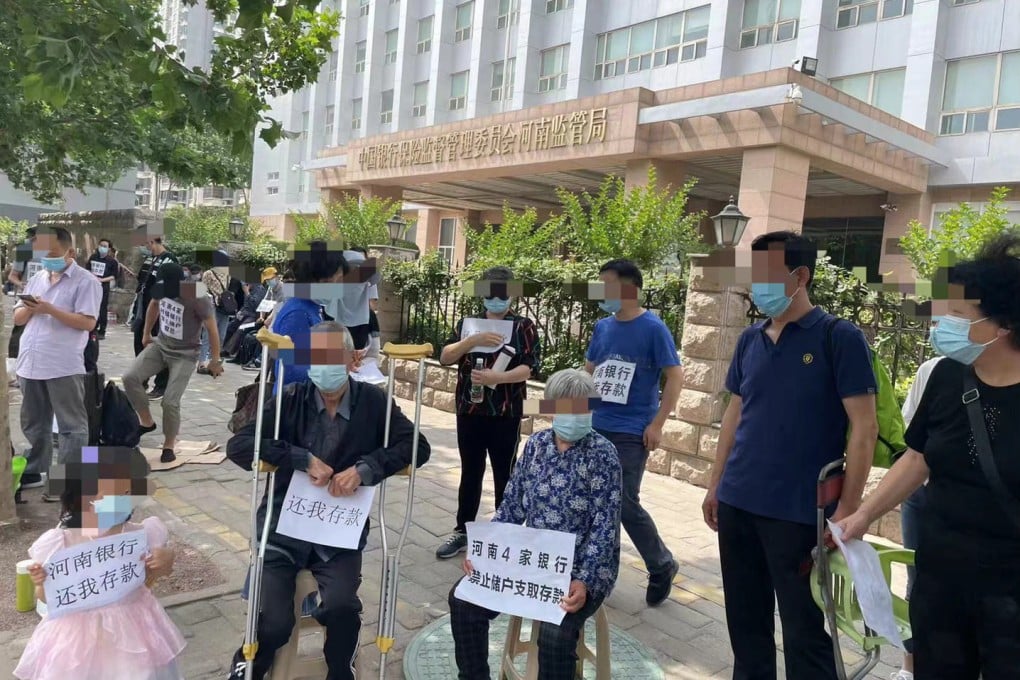Advertisement
Hundreds more arrested in China’s rural banking scandal
- Police in Xuchang say criminal gang seduced depositors with very high interest rates of at least 13 per cent
- Suspects accused of involvement in a snowballing crisis that has sparked protests
Reading Time:2 minutes
Why you can trust SCMP
19

Police in central China’s Henan province have arrested more than 230 people suspected of involvement in a massive rural banking scandal.
“The criminal gang, headed by Lu Yi, illegally took control of four rural banks, including Yuzhou Xinminsheng Village Bank, and are suspected of committing a series of severe crimes,” the public security bureau in the city of Xuchang said on Monday.
The gang lured depositors with unusually high annual interest rates of 13-18 per cent, police said, without offering details.
Advertisement
Police said 234 people were arrested and work to recover the lost funds was under way.
The arrests are the latest in a huge financial scandal that has left thousands of depositors across the country without access to tens of billions of yuan in frozen funds, igniting months-long protests.
Advertisement
Advertisement
Select Voice
Select Speed
1.00x
